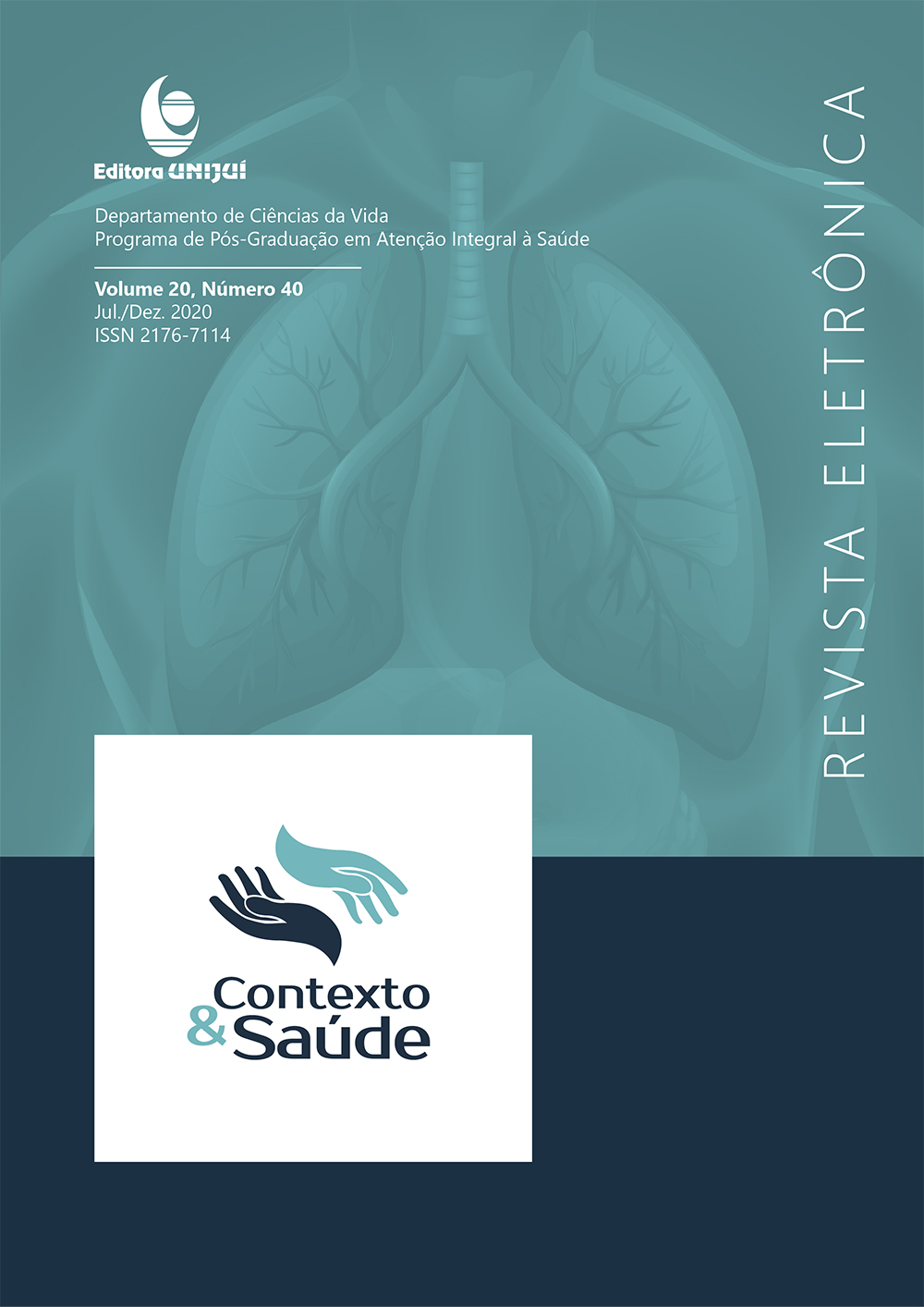DESENVOLVIMENTO PSICOMOTOR DE CRIANÇAS COM BAIXO PESO
DOI:
https://doi.org/10.21527/2176-7114.2020.40.67-74Keywords:
Development. Child. Psychomotor performanceAbstract
OBJECTIVE: To evaluate the psychomotor development of children with low weight. METHODS: Field study, descriptive, observational, transversal and with quantitative approach, carried out from april to july 2017, in early childhood institute. It was approved by the 2.007.070/2017, following Resolution 466/12. Were evaluated 34 children aged 4 to 6 years, using the Psychomotor Battery in Vitor da Fonseca – adapted. The data were analyzed by software Statistical Packcage for the Social Sciences version 20.0. RESULTS: Prevalence of the female gender, the age group of six years and the monthly income of up to one minimum wage. From the total of participants, it was observed that 20 (59,8%) presented the dyspraxic profile, 12 (35,2%) the normal profile and two (5,9%) the good profile. Correlating the psychomotor factors with the profile, it was observed that, with the exception of tonicity, all other six factors (balance, laterality, body notion, spatio-temporal structuring, global and fine praxis) obtained values with the prevalence of scores 1 and 2, defining a psychomotor deficit due to low weight. It was also found that 16 (57,1%) children, even with recovery of nutritional status, still presented the dyspraxic profile. CONCLUSIONS: It is possible through joint actions of nutritional monitoring and intervention of psychomotricity, reestablish the low weight and favor an intervention directed to the psychomotor development of the child.
Downloads
Published
How to Cite
Issue
Section
License
By publishing in Revista Contexto & Saúde, authors agree to the following terms:
The works are licensed under the Creative Commons Atribuição 4.0 Internacional (CC BY 4.0) license, which allows:
Share — to copy and redistribute the material in any medium or format;
Adapt — to remix, transform, and build upon the material for any purpose, including commercial.
These permissions are irrevocable, provided that the following terms are respected:
Attribution — authors must be properly credited, with a link to the license and indication of any changes made.
No additional restrictions — no legal or technological measures may be applied that restrict the use permitted by the license.
Notes:
The license does not apply to elements in the public domain or covered by legal exceptions.
The license does not grant all rights necessary for specific uses (e.g., image rights, privacy, or moral rights).
The journal is not responsible for opinions expressed in the articles, which are the sole responsibility of the authors. The Editor, with the support of the Editorial Board, reserves the right to suggest or request modifications when necessary.
Only original scientific articles presenting research results of interest that have not been published or simultaneously submitted to another journal with the same objective will be accepted.
Mentions of trademarks or specific products are intended solely for identification purposes, without any promotional association by the authors or the journal.
License Agreement (for articles published from September 2025): Authors retain copyright over their article and grant Revista Contexto & Saúde the right of first publication.

